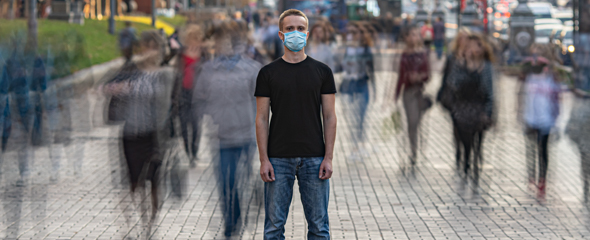If, for example, policymakers want to open up cultural services and the service sector in general, it would be advisable to make the reopening contingent on rapid antigen testing plans, adapted hygiene concepts, and digital data collection. Since this approach would avoid infections, adopting it would be in the best interests of providers of cultural and other services.
Testing should be conducted at the slightest sign of symptoms and for people at high risk. In red zones with high infection rates, everyone should be tested twice a week. Students and teachers everywhere should be tested twice a week, and so should the children and staff in daycare centers. The same should apply to all employees not working from home as well as to those in public authorities and refugee housing.
Testing is a critical tool for keeping the infection rate in check. The aim should be to bring case numbers down and prevent them from going up again. Infections must be detected early and infected people must self-isolate so as not to pass on the virus. To be effective, testing needs to be frequent, widespread, and easily accessible.
Find here the press release of the ifo Institute: https://www.ifo.de/en/node/61957
Original publication:
Baumann, Menno / Beier, Markus / Brinkmann, Melanie / Brockmann, Dirk / Bude, Heinz / Fuest, Clemens / Feldner, Denise / Hallek, Michael / Kickbusch, Ilona / Mayer, Maximilian / Meyer-Hermann, Michael / Peichl, Andreas / Rosert, Elvira / Schneider, Matthias. Eine neue proaktive Zielsetzung für Deutschland zur Bekämpfung von SARS-CoV-2 3. Teil: Teststrategien. Wissenschaftlergruppe der NoCovid-Strategie, 2021.

